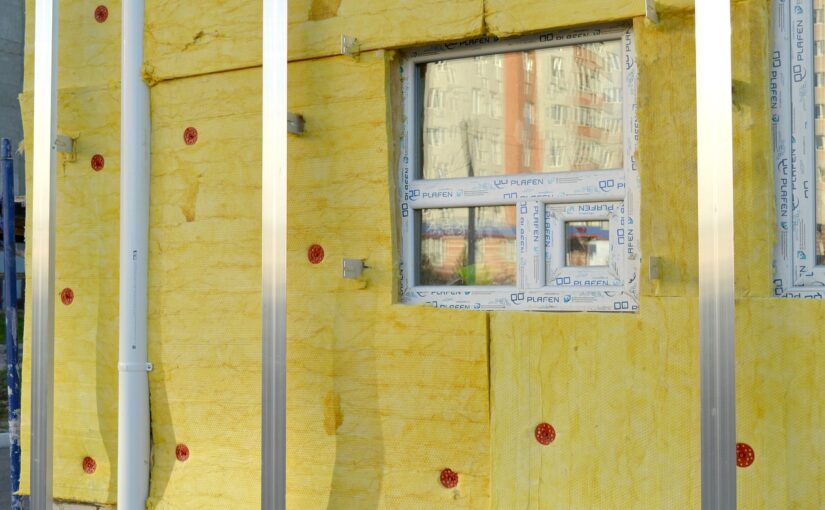Insulation is one of the most important elements in ensuring a comfortable, energy-efficient home. With proper insulation installed, your home is at less risk of accumulating moisture and heat and blocking noise from outside. It can also help reduce your energy bills and minimize air leakage, leading to further savings on energy costs.
In this blog, we’ll discuss the benefits of proper home insulation and how it can help you save money in the long run.
Understanding Home Insulation
Home insulation uses materials like foam, cellulose, fiberglass, and spray foam to trap air within a structure. Insulation helps regulate indoor temperatures by blocking heat from entering during hot summer months or leaving during cold winter months. It also reduces energy consumption and keeps your home’s interior comfortable throughout the year.
Types of Insulation Materials
There are several types of insulation available on the market, and it’s essential to select the right one for your home. Here are some of the most popular types:
Fiberglass Insulation
This is one of the most common types of insulation used in homes due to its affordability and ease of installation. It comes in batts or rolls and can be used in attics, walls, and floors.
Cellulose Insulation
This is made from recycled paper products like newspapers that are treated with fire retardants to make them safe for use in homes. It is suitable for soundproofing, and its low cost makes it an attractive option.
Spray Foam Insulation
This type of insulation is sprayed on walls and cavities. It expands to fill the space, providing a better seal than traditional insulation materials.
Benefits of Proper Home Insulation
Now that we have a better understanding of the types of insulation available let’s take a look at some of the key benefits it can provide:
Energy Efficiency: Saving Money and the Environment
Proper insulation helps keep your home comfortable by holding in conditioned air and blocking hot or cold temperatures. This can also help you save money on energy bills since you’re not wasting energy trying to cool down or heat the interior of your house. Additionally, reducing the energy used helps conserve natural resources and reduce your carbon footprint.
Enhanced Comfort and Indoor Environment
Imagine stepping into a home where temperatures remain consistent, regardless of outside weather. Well, that’s precisely what proper insulation can do for you! Adding insulation to your home helps keep temperatures consistent and maintains a comfortable indoor environment.
Less Noise Pollution
Insulation also blocks out outside noise, creating a more serene atmosphere indoors. This can be especially beneficial if you live in a noisy area or near an industrial area.
Maintenance and Upkeep
Insulation, like any other home component, requires proper maintenance to ensure you get the full benefits of proper home insulation longevity and effectiveness. We’ll provide valuable tips on how to maintain and extend the lifespan of insulation, as well as common signs of insulation issues that may require professional attention:
Regular Inspection
Schedule regular insulation inspections to detect any signs of wear or damage. Conduct visual checks in your attic, crawl spaces, and walls to look for indications of deterioration, moisture intrusion, or pest infestation.
Moisture Management
Moisture is a significant enemy of insulation. Ensure proper ventilation in areas prone to moisture accumulation, such as bathrooms, kitchens, and basements. Address any leaks or water intrusion issues promptly to prevent damage to the insulation material.
Air Sealing
Inspect and seal any gaps or cracks in the building envelope, such as around windows, doors, and electrical outlets. Proper air sealing prevents air leakage, which can compromise the efficiency of your insulation and result in energy loss.
Pest Prevention
Pests can wreak havoc on insulation, causing damage and reducing its effectiveness. Implement measures to prevent pests from entering your home, such as sealing entry points, installing mesh screens, and maintaining a clean environment that discourages infestations.
Insulation Replacement
Over time, insulation may degrade or become less effective. Consider replacing insulation that shows significant damage, compression, or deterioration. Consult with insulation professionals to determine the appropriate insulation material and thickness for your specific needs.
Common Signs of Insulation Issues
- Drafts or uneven temperatures: If you notice drafts or inconsistent temperatures in different areas of your home, it could indicate insulation gaps or insufficient coverage.
- Increased energy bills: A sudden rise in energy consumption without any apparent explanation may indicate insulation problems, as it indicates that your HVAC system is working harder to compensate for insulation deficiencies.
- Moisture or mold growth: Damp insulation or the presence of mold or mildew is a clear indication of moisture infiltration, which can compromise insulation effectiveness and pose health risks.
- Pest infestation: If you notice signs of pest activity in your insulation, such as droppings or chewed materials, it’s crucial to address the issue promptly to prevent further damage.
- Settling or compression: Insulation that has settled, become compressed, or lost its fluffiness over time is less effective in providing adequate thermal resistance and should be evaluated for a potential replacement.
Proper Home Insulation Installation
The level of insulation in your home can be determined by performing an energy audit. The auditor will consider factors such as climate, building materials, and your lifestyle to recommend the ideal insulation solution for you. Insulation installation is a complex process that requires skill and expertise, so it’s best left to professionals like iFOAM, who are trained and certified in this field.
Conclusion
Proper home insulation is the secret ingredient to a comfortable, energy-efficient, and healthy living environment. By regularly inspecting your insulation, you can ensure its optimal performance and protect against noise, pollutants, and allergens. Watch out for signs of damage and address them promptly to avoid costly repairs.
Your investment in proper insulation today will reward you with long-term savings and improved air quality, making your home a true space of comfort and tranquility.
Author: Jianne Richelle
Still looking for a fixer-upper? Have a look at the cheapest houses in the world!
